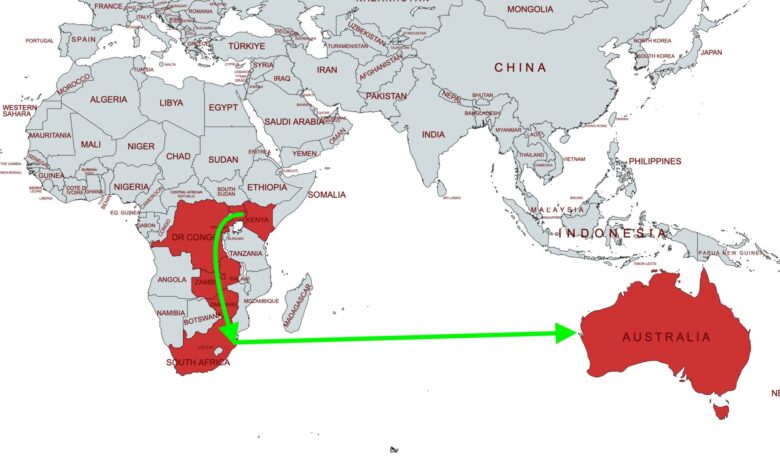Google to Construct Groundbreaking Subsea Cable Linking Africa and Australia

Google is at it again, pushing the boundaries of digital infrastructure. The tech giant announced an exciting new project: the Umoja cable.
This will be the first subsea cable to connect Western Australia with South Africa. But that’s not all. The Umoja cable is part of a broader initiative that will also see the construction of a terrestrial path running through several African countries, bolstering internet connectivity across the continent.
What is the Umoja Cable?
Connecting Continents and Countries
The Umoja cable aims to link Western Australia with South Africa, creating a direct and powerful digital highway between the continents.
This is a massive leap forward in global connectivity, but the project doesn’t stop there. The cable will also feature a terrestrial path connecting South Africa to Kenya, passing through Uganda, Rwanda, the Democratic Republic of Congo, Zambia, and Zimbabwe.
Collaboration with Liquid Intelligent Technologies
The terrestrial portion of the Umoja project has been built in collaboration with Liquid Intelligent Technologies.
This partnership underscores the collaborative spirit behind the project, leveraging local expertise and infrastructure to achieve a truly groundbreaking feat in connectivity.
Also Read: Google’s Gemini: A Deep Dive into the Next-Gen AI Suite
Enhancing Global and Regional Digital Infrastructure
Significant Benefits
According to William Ruto, President of Kenya, this new intercontinental fiber optic route will “significantly enhance our global and regional digital infrastructure.”
This enhancement is crucial, especially considering recent disruptions caused by cuts to existing subsea cables. The Umoja cable is designed to ensure redundancy and resilience, making Africa’s connectivity to the rest of the world more robust and reliable.
Google’s Commitment to Africa
Google has been making significant investments in Africa’s digital future. In 2021, the company pledged to invest $1 billion in the continent.
To date, it has already funneled $900 million into various projects, including the launch of the Equiano cable, which connects Africa and Portugal, and the establishment of its first African cloud region in Johannesburg.
Strategic Collaboration with Kenya
Cybersecurity and Data Innovation
As part of the Umoja project, Google will be signing a statement of collaboration with Kenya’s Ministry of Information Communications and the Digital Economy.
This agreement will accelerate joint efforts in key areas such as cybersecurity, data innovation, upskilling, and AI deployment.
These initiatives are vital for ensuring that the digital infrastructure not only supports connectivity but also fosters a secure and innovative digital economy.
Also Read: South Africa Becomes 1st African Nation to Receive Google’s AI Chatbot “Gemini”
Why “Umoja”?
The name “Umoja” is derived from the Swahili word for “unity.” It perfectly encapsulates the spirit of this project, which aims to unite continents and countries through cutting-edge technology and collaborative efforts.
The Broader Impact of the Umoja Cable
Boosting Economic Growth
Enhanced connectivity will undoubtedly have a profound impact on economic growth across the African continent.
By providing faster, more reliable internet access, the Umoja cable will enable businesses to operate more efficiently, attract foreign investment, and drive innovation.
Empowering Communities
From education to healthcare, improved internet connectivity can transform lives. The Umoja cable will empower communities by providing access to information, resources, and opportunities that were previously out of reach.
Imagine rural schools with access to the latest educational materials or remote clinics consulting with specialists in real-time.
Addressing Connectivity Disruptions
Recent disruptions in internet connectivity due to subsea cable cuts have highlighted the vulnerability of existing infrastructure.
The Umoja cable’s design prioritizes redundancy and resilience, ensuring that connectivity remains stable even in the face of unforeseen challenges.
Conclusion
The Umoja cable is more than just a technological feat; it’s a symbol of unity and progress. By connecting Africa and Australia, Google is not only enhancing global digital infrastructure but also paving the way for a more connected and empowered Africa.
As this project unfolds, we can look forward to a future where geographical boundaries no longer limit access to information and opportunities.
The journey doesn’t end here. With continued investments and collaborations, Africa’s digital landscape is set to transform, bringing with it unprecedented growth and development.





